The Ultimate Guide to Gardening in Barking
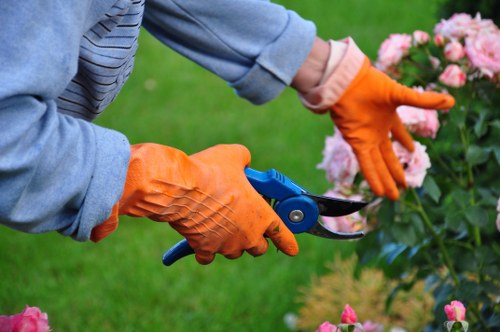
Gardening in Barking offers a unique experience for both novice and seasoned gardeners. Nestled in the heart of London, Barking provides a diverse climate that supports a wide range of plants. Whether you have a sprawling backyard or a cozy balcony, gardening here can transform your space into a green oasis.
One of the key aspects of garden maintenance in Barking is understanding the local soil conditions. The region's soil is typically a mix of clay and silt, which retains moisture well but can become compacted. Incorporating organic matter such as compost can improve soil structure, promoting healthy plant growth.
Another important factor is the climate. Barking experiences mild winters and warm summers, making it ideal for growing a variety of perennials and annuals. Seasonal planning is essential to maximize the blooming periods and ensure that your garden remains vibrant throughout the year.
When selecting plants for your Barking garden, consider native species as they are well-adapted to the local environment. Plants like Lavender, Roses, and Hydrangeas thrive in Barking's conditions and require less maintenance. Additionally, incorporating shrubs and trees can provide structure and shade, enhancing the overall aesthetic of your garden.
Watering is another critical component of successful gardening. With the occasional droughts and unpredictable rainfall, installing a rainwater harvesting system can help manage water usage efficiently. Drip irrigation systems are also beneficial as they deliver water directly to the plant roots, minimizing waste.
Pest control is a common challenge faced by gardeners in Barking. Utilizing organic methods such as introducing beneficial insects, using neem oil, or planting companion plants can effectively manage pests without harming the ecosystem. Maintaining plant health through proper nutrition and care also reduces susceptibility to infestations.
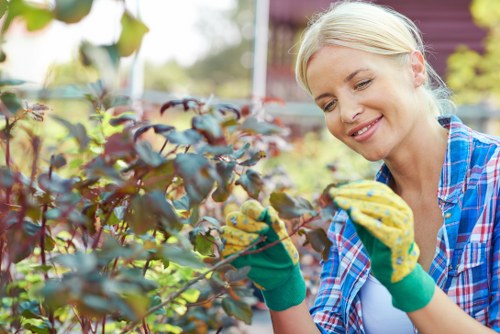
Soil preparation is the foundation of any successful garden. In Barking, testing your soil's pH level and nutrient content can guide you in making the necessary amendments. Adding lime can help raise the pH for alkaline-loving plants, while sulfur can lower it for acid-loving varieties.
Mulching is a beneficial practice that helps retain soil moisture, suppress weeds, and regulate soil temperature. Organic mulches like bark chips, straw, or compost not only provide these benefits but also enhance soil fertility as they decompose over time.
Creating garden beds with raised borders can improve drainage and soil aeration, which are particularly useful in areas with heavy rainfall. Raised beds also make gardening more accessible, reducing the need to bend or kneel, thereby preventing strain on the back and knees.
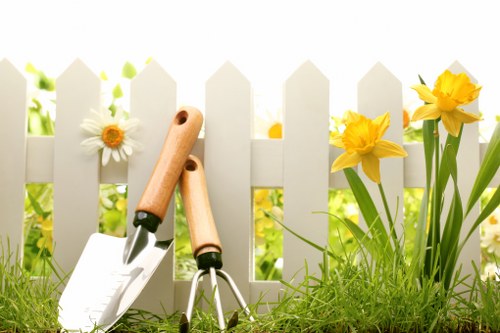
Gardening tools play a significant role in the maintenance and productivity of your Barking garden. Investing in high-quality tools such as pruners, shovels, and hoes can make garden tasks more efficient and enjoyable. Regularly maintaining your tools ensures their longevity and effectiveness.
Incorporating sustainable practices into your gardening routine can have a positive impact on the environment. Composting kitchen scraps and garden waste reduces landfill contributions and provides rich nutrients for your soil. Additionally, using eco-friendly fertilizers and pesticides helps preserve the local ecosystem.
Community gardening is another wonderful way to enhance your gardening experience in Barking. Participating in local garden projects fosters a sense of community, provides opportunities to share knowledge, and promotes sustainable urban living. It also allows for the creation of shared green spaces that benefit everyone.
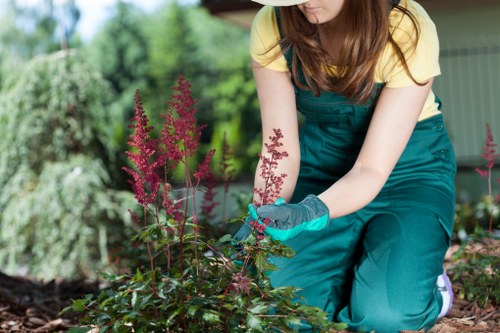
Lawn care is an essential aspect of maintaining a picturesque garden. In Barking, achieving a lush green lawn involves regular mowing, watering, and fertilizing. Aerating the lawn annually helps improve root growth and overall soil health.
Seasonal changes require adjustments in lawn care routines. In the spring, overseeding helps fill in bare spots and promotes dense growth. During the summer, adjusting watering schedules to account for higher temperatures ensures that the grass remains healthy and resilient.
In the autumn, preparing your lawn for the winter by applying a fall fertilizer and removing fallen leaves prevents disease and promotes a strong root system. Proper lawn care not only enhances the beauty of your garden but also contributes to the overall health of your outdoor environment.
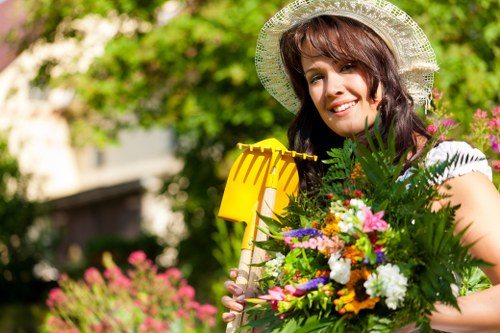
Container gardening is an excellent option for those with limited space. In Barking, where urban living is common, utilizing containers allows you to grow flowers, herbs, and vegetables on balconies, patios, and rooftops. Choosing the right size and type of container is crucial for ensuring adequate drainage and root development.
Vertical gardening is another innovative technique that maximizes space efficiency. Using trellises, pergolas, and wall-mounted planters can create stunning visual displays while providing support for climbing plants. This approach not only conserves space but also adds architectural interest to your garden.
Integrating lighting into your gardening design can extend the enjoyment of your outdoor space into the evening hours. Solar-powered lights, LED strips, and spotlights highlight key features of your garden, creating a magical ambiance and enhancing safety.